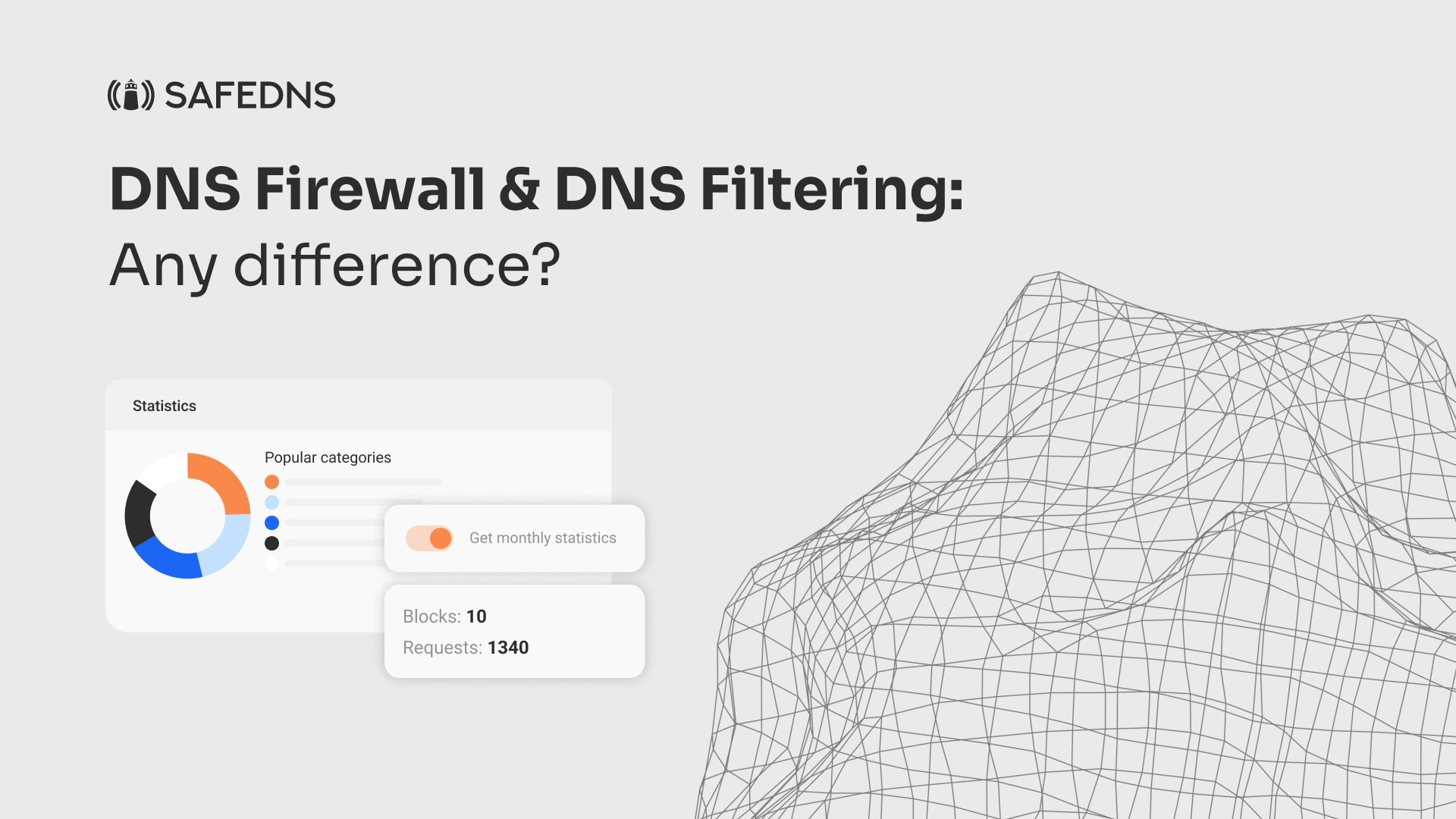
DNS Filtering & DNS Firewall: Any Difference?
In the digital age, cybersecurity is a top concern for businesses and individuals alike. One of the most important aspects of online security is filtering unwanted content and preventing unauthorized access to networks. Two commonly used technologies for this purpose are firewalls and content filtering. However, there is often confusion around the terminology used to describe these technologies, particularly in relation to DNS filtering. In this article, we will explore the differences between firewalls, content filtering, and DNS filtering, and clarify the terminology used to describe each.
What is a Firewall?
A firewall is a security system designed to monitor and control incoming and outgoing network traffic based on predefined security rules. Firewalls can be implemented at different levels of the network, including the hardware level, operating system level, and application level. Firewalls can block unwanted traffic, detect and prevent unauthorized access, and protect the network and the user against malware and other security threats.
What is Content Filtering?
Content filtering refers to the process of blocking or allowing access to certain types of content based on predefined criteria. Content filtering can be done at the network level or at the endpoint level, and can be based on a variety of factors, including keywords, website categories, file types, and more. Content filtering is often used to block access to inappropriate or harmful websites, or to prevent users or employees from accessing malicious websites or non-work-related content during work hours.
What is DNS Filtering?
DNS filtering or a DNS filter is a type of web content filtering that is based on domain name system (DNS) queries. DNS filtering works by intercepting DNS queries and determining whether to allow or block the requested domain based on predefined criteria. DNS filtering can be used to block access to known malicious domains or a malicious site, prevent access to specific categories of content, and enforce company policies related to internet usage. DNS filtering vendors may use blocklists that are either shared within the cybersecurity community, self-generated, or a combination of both.
Why do DNS filters and DNS Firewalls get mixed up?
One reason for the confusion between DNS filtering and DNS firewall is that both technologies operate at the DNS level. However, while DNS filtering is a type of content filtering that focuses on blocking sites or allowing access to specific domains, DNS firewalling is a more comprehensive approach that involves blocking or allowing traffic based on a wide range of criteria, including IP addresses, ports, protocols, and more. In essence, DNS filtering is a subset of DNS firewalling, but the two terms are often used interchangeably, which can lead to confusion.
Are they the same or different, then?
While DNS filtering is often referred to as a DNS firewall, this is not entirely accurate. A DNS firewall is a security system that is designed to prevent attacks that exploit DNS vulnerabilities, such as DNS cache poisoning or DNS amplification attacks. DNS filtering, on the other hand, is a content filtering technology that is designed to block or make requests that allow access to specific domains based on predefined criteria. While both technologies operate at the DNS level, they have different purposes and should be referred to using the appropriate terminology.
It's crucial for cybersecurity companies to have a clear understanding of what "DNS Firewall" really means and to ensure that they can deliver exactly what their customers and clients expect from them, without any confusion or uncertainty. While this term is used in many definitions and contexts, it can sometimes be difficult to know exactly what you're getting. That's why it's important to choose a cybersecurity provider that you can trust to provide the services they promise. At SafeDNS, we started out as a content filter, and we have built our reputation on being transparent and delivering exactly what we say we will. When you work with us, you can have confidence that you are getting the protection and security you need, without any guesswork or uncertainty. Choose SafeDNS and let us help you stay safe and secure online.
If you're interested in protecting your network, server, users and employees from harmful content and malicious domains, sign up for a free trial of SafeDNS today. Our DNS servers are ready to safeguard your online experience and block malware, phishing attacks, and more, all by efficiently filtering a DNS query based on predefined criteria, including domain names and IP addresses.
Take advantage of the SafeDNS trial period and try all the best features

